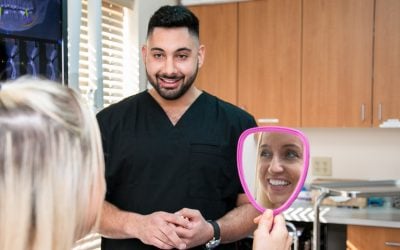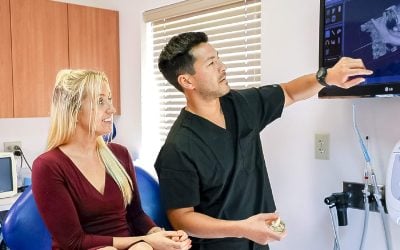Wisdom tooth extraction is an incredibly common procedure; in fact, it is one we perform quite regularly here at MassOMS. The majority of people have their wisdom teeth removed at some point in their lives, and, while the exact age varies, most often, these teeth are removed between the ages of 17 and 25.
If you need to have your wisdom teeth removed, or if you have any questions about the procedure, please don’t hesitate to contact us. We would be more than happy to answer any of your questions and help you make the best choice for your oral health. Call our Brookline, MA, office today!
What are Wisdom Teeth?
Wisdom teeth are the third and final set of molars to develop in the mouth. Lacking any real purpose but presenting plenty of potential for problems, the American Association of Oral and Maxillofacial Surgeons actually predicts that 90% of people are at risk of having an impacted wisdom tooth. For this reason, these teeth are typically removed before they have the chance to become problematic.
There are four wisdom teeth in total, one located in each of the upper and lower back corners of the mouth. For some patients, all of these teeth are removed at once. In contrast, others may only have one or two teeth removed, and the rest may not develop at all; in some cases, the teeth even erupt perfectly. This outcome is truly unique to each individual, which emphasizes the importance of visiting a dentist regularly to monitor the position of these teeth.
Reasons for Removal
As mentioned previously, it is very common that wisdom teeth are removed before being given a chance to cause problems. The reasons for this are that the risks associated with their growth are much greater than the benefits of keeping them. A few of the reasons they are suggested for removal include the following:
- Wisdom teeth can crowd other teeth and cause them to shift out of place. This can lead to a number of problems, such as pain, difficulty chewing, and an increased risk of cavities and gum disease.
- Wisdom teeth that are impacted become trapped beneath the gum tissue or bone. This can cause pain and cyst development, which has the potential to damage neighboring teeth and bone.
- Wisdom teeth that come in partially can leave a flap of gum tissue that is hard to clean. This can trap food and bacteria and lead to cavities or infection. Infection of this flap of gum tissue is known as pericoronitis; it can be very painful and often requires antibiotics for treatment.
Symptoms of Wisdom Tooth Impaction
Wisdom tooth impaction is a very serious issue and may lead to a number of problems if not treated early. Some of the most common symptoms include:
- Jaw pain
- Swelling in the back quadrant of the mouth
- Difficulty opening the mouth
- Bad breath
- A bad taste in the mouth
- An earache
- Headache
Post-Procedural Recovery
After having your wisdom teeth removed, it is important to take care of the surgical site in order to promote a quick recovery. Below are some general instructions to follow:
- Rest and relax for the first 24 hours after surgery. You may want to make plans to take time away from work or school during this period.
- Apply ice to your face for up to 20 minutes at a time, several times a day, for the first few days after surgery. This will help reduce swelling.
- Take over-the-counter pain medication as needed for any discomfort following the procedure.
- Be sure to brush your teeth gently and thoroughly, being careful to avoid the surgical sites.
- Rinse your mouth with a saltwater solution several times a day to help keep the area clean.
- Avoid using a straw, smoking, or spitting for at least 72 hours, as these can cause bleeding and interfere with healing.
- Follow a liquid diet for the first 24 hours after surgery and eat only soft foods over the following days as swelling subsides; gradually add solid foods back to your diet.
- Be sure to follow up with our team as scheduled to ensure smooth progress through healing.

